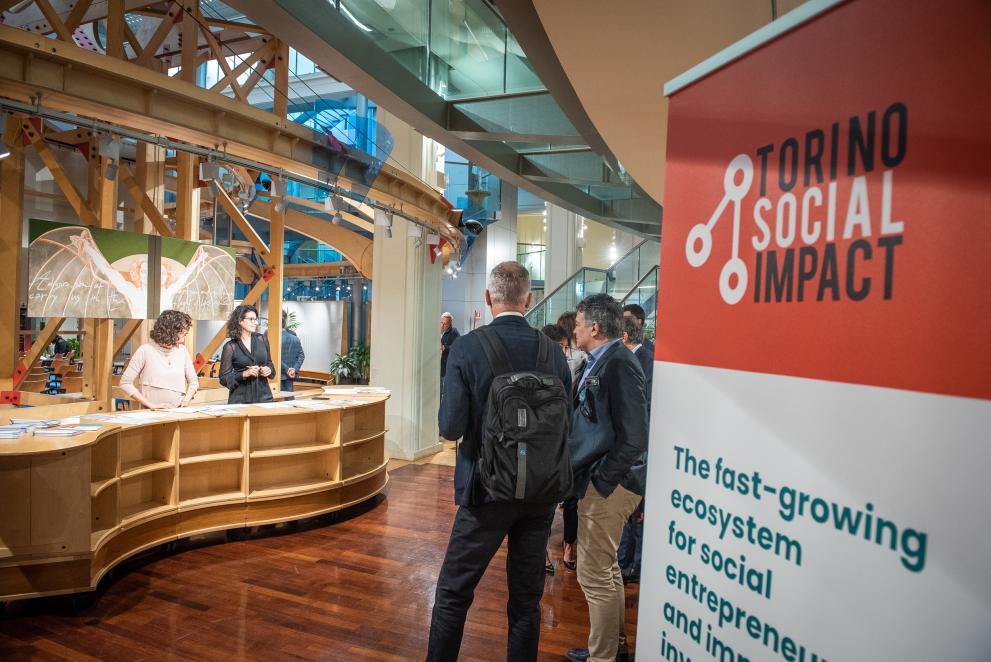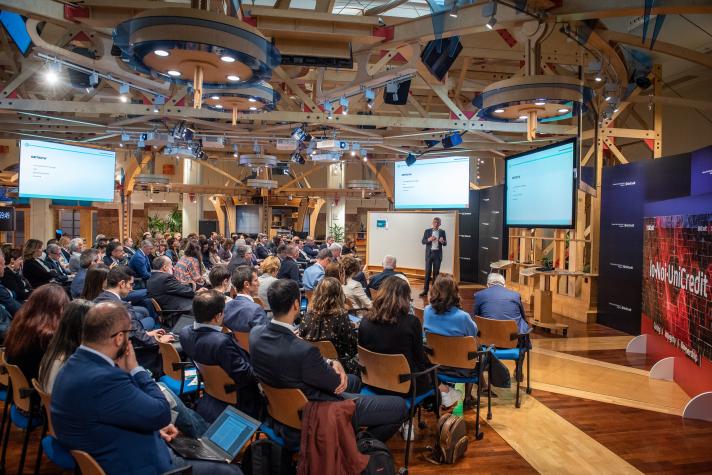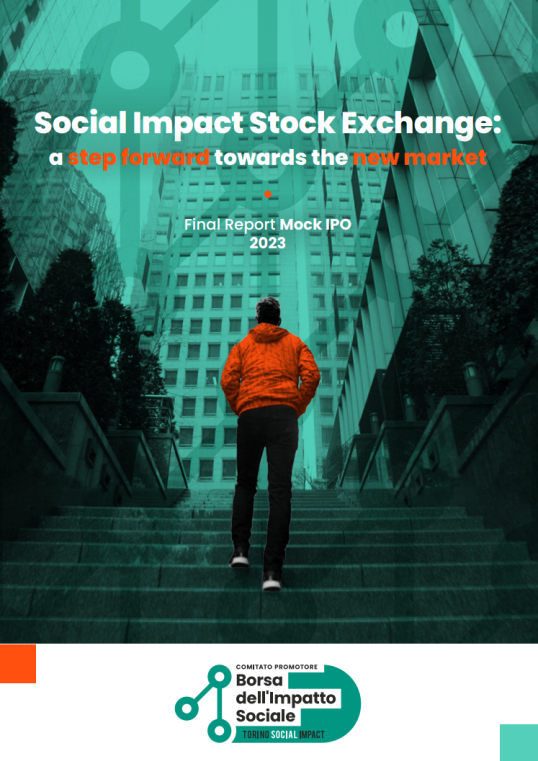
Why do we need a financial market dedicated to social enterprises?
In recent years, thanks to the significant evolution of the Italian regulatory framework through the third sector and social enterprise reform and with the introduction of benefit corporations, the identity of the social economy has been strengthened as a sector capable of making a significant contribution to the country's economic growth and social progress. Moreover, there has been an increased awareness within the financial community regarding the importance of the social dimension of its activities. In particular, the discussion surrounding impact investing has brought the consequences of investment practices back into the forefront of debate.
Hence, the idea of launching a capital market dedicated to businesses with social purposes emerged. This proposal does not replace existing funding channels but rather complements and integrates them, offering additional opportunities for those, both on the capital supply and demand sides, interested in supporting the perspective of a "new" economy. The latter aims not only to mitigate negative environmental and social impacts but also to explicitly generate social value for all stakeholders involved.
Background
The company Avanzi Sostenibilità per Azioni, specialized in sustainability projects, conducted an initial study on the subject in 2009, and the initiative was then revamped by Torino Social Impact in 2019.
As a first step, a feasibility study, which included a benchmark analysis of the main international experiences in the field, an examination of the supply and demand system, the identification of access requirements and related control processes, and the definition of the financial sustainability model, was released.
Consequently, the Mock IPO was initiated as an experimental exercise to test the assumptions and conclusions of the Feasibility Study. After conducting the theoretical analysis, we felt it necessary to demonstrate the robustness of the initial hypotheses and to identify any barriers that needed to be addressed.
The Mock IPO
The experiment was conducted through the collaboration of 150 professionals and a sample of 8 companies operating in the Italian context, representing various industrial sectors. These companies participated in a simulation of the listing process, which not only presented the traditional corporate profile from an economic and financial perspective but also highlighted, for the benefit of investors, the promises of social impact and expected outcomes.
|
Company name |
Sector of activity |
Average turnover 2019-2021 (Euro) |
|
PMG Italia (Limited Company, Benefit Corporation) |
Mobility for disadvantaged individuals The main activity involves granting paid concessions to Sponsor Companies for advertising spaces primarily located on the exterior surface of vehicles equipped for the transportation of people who are in vulnerable conditions. Additionally, the company carries out environmental and urban area redevelopment projects, as well as educational and awareness initiatives targeting students. Registered office: Bolzano (Trentino) Operating region: Italy (Bologna, Milano Aprilia , Rimini, Bolzano and Padova Year of establishment: 2012 N. of employees: 17
|
12.5 millions |
|
Cooperjob SpA Agenzia per il Lavoro (Limited Company) |
Employment The objective of the medium/long term development plan is to become the reference employment agency for the not for profit sector by involving entities from the CGM network. Registered office: Milano (Lombardia) Operating region: Italy (Torino, Biella, Pordenone, Chiavari, Piacenza, Como, Reggio Emilia, Piacenza, Udine) Year of establishment: 2007 N. of employees: 794
|
21 millions |
|
Cooperativa Sociale Quadrifoglio (Social Cooperative, Social Enterprise) |
Social services Management of residential and semi-residential services for disabled individuals, the elderly and people with psychiatric disabilities; provision of hotel services, home care assistance, management of day use spaces, educational services and school support. Registered office: Pinerolo (Piemonte) Operating region: Italy (North and central) Year of establishment: 1981 N. of employees: 3625 |
105 millions |
|
Coopselios (Social Cooperative, Social Enterprise) |
Social services Advanced solutions for social, care, educational, and healthcare needs through residential and semi-residential services, including innovative ones such as Multifunctional Centers, Open Residential Care Facilities, activities for Special Educational Needs, Dyslexia Support, Parenting and Family Education Centers. Registered office: Reggio Emilia(Emilia Romagna) Operating region: Italy (Emilia Romagna, Lombardia, Veneto, Lazio, Liguria, Toscana, Trentino) and Bruxelles Year of establishment: 1984 N. of employees: 3000+
|
125 millions |
|
AEG Azienda Energia E Gas (Social Cooperative) |
Gas and energy distribution The company primarily operates in the sector of selling natural gas and electricity, both in the retail segment, serving its shareholders, and in the business segment for small and medium-sized enterprises. Registered office: Ivrea (Piemonte) Operating region: Italy Year of establishment: 1901 N. of employees: 33 |
30 millions |
|
ANTEO (Social Cooperative, Social Enterprise) |
Social and healthcare services The company manages over 100 residential facilities, including Healthcare and Assistance Residences, Communities, Co-living Units, and Apartment Groups for psychiatric patients, as well as educational communities for minors with severe family issues or in a state of abandonment. Registered office: Biella (Piemonte) Operating region: Italy Year of establishment: 1993 N. of employees: 1722 |
64 millions |
|
Reynaldi (Limited Liability Company, Benefit Corporation) |
Third-party cosmetics manufacturing The company provides comprehensive services including product formulation, packaging design, and labelling. They collaborate with clients who ensure the organic origin of ingredients and manage facilities with a circularity approach. Registered office: Pianezza (Piemonte) Operating region: Italy, Usa, Russia, Germany Year of establishment: 1988 N. of employees: 51 |
6 millions |
|
Slow Food Promozione (Limited Liability Company, Benefit Corporation) |
Promotion of biodiversity and responsible consumption Ideation, design, and organisation of activities inspired by the principle of the right to good, clean, and fair for everyone in the world. Registered office: Bra (Piemonte) Operating region: Italy/World Year of establishment: 1991 N. of employees: 51 |
4 millions |
The simulation exercise took as its methodological reference the requirements set for accessing two existing Italian financial markets managed by Borsa Italiana (the Euronext Growth Milan market, dedicated to small and medium-sized Italian companies in the growth phase, and the ExtraMOT PRO3, the bond market designed to offer SMEs a simple and rapid first access to capital markets and where trading is allowed only for professional investors).
In order to gather useful elements for defining the operating conditions of the future market, the traditional listing process was enriched with in-depth elements related to the impact dimension. These included the development of an Impact Strategy (defining the impact statement and specific impact objectives) and the design of a Theory of Change to articulate expected results and changes. Additionally, the design of an Impact Measurement Infrastructure was developed, including the identification of indicators and metrics, the process and tools development for data collection and analysis, the identification of specific targets and impact goals, the definition of impact risks and associated mitigation and lock-in mechanisms. The findings in this regard were included in an additional section of the Admission Document aimed at providing investors with accurate and shared information in advance regarding the company's defined change objectives and the related methods for measuring and reporting performance.
Moreover, during the experimentation three cross-functional technical working groups were established, composed of qualified professionals focused on the following topics: evaluation of the regulatory framework related to various forms of impact-driven enterprises; assessment of tax aspects related to the listing process of socially oriented companies; development of a solution to enable the listing of cooperatives as they have distinctive characteristics that require some adaptations to the rules of financial markets and which represent a significant portion of the Italian social economy.
Main insights
The main results of the mock IPO highlight how these companies are able to generate value both financially and socially, contributing to sustainable community development and presenting an opportunity for investors to achieve sustainable financial returns while generating social benefits simultaneously.
The simulated listing exercise confirmed the existence of social economy enterprises that are "listable", meaning they can intentionally and measurably produce both economic and social value with structural and dimensional characteristics that enable them to manage a listing process. It also demonstrated that listing is technically feasible, and the information and reporting tools implemented appear capable of meeting investor needs.
Positive social impact enterprises can create a long-term competitive advantage. When they integrate sustainability and social impact into their business models, they can attract talent, build strong customer relationships and generate long-term value for investors.
Within the 8 working groups, the majority of companies have hypothesized an issue of equity securities, while Slow Food Promozione Srl SB simulated an issuance of Sustainability-Linked debt securities, which promote the overall functioning of the issuer, with explicit sustainability objectives tied to the financing conditions of the bond.
The analysis has also led to the creation of ad hoc financial instruments capable of enhancing social performance and making the opportunity more attractive to investors, as well as the development of technical solutions for the cooperative sector. For the case of PMG Italia Spa SB, a model of Warrant has been conceived to be associated with the ordinary issue of shares, as an additional right for investors to subscribe to additional Compendium Shares at a predetermined price (strike price). The proposed instrument stipulates that warrants are exercised by their respective holders based on the achievement of the social impact objectives outlined in the Business Plan of the company. This unique instrument has been engineered based on the characteristics of the company and can be applied to other scenarios with appropriate adjustments.
Within the frameworks of the developed methodologies for measuring social impact in different working groups, a good balance has been found between the necessary tailor-made approach in defining the social impact measurement and evaluation model, and the level of complexity of the proposed metrics and tools. The participating companies have been guided in defining their impact model, which, although validated with the Theory of Change, has led, as expected, to the selection of different methodologies and measurement tools based on the nature of the expected change. The multitude of indicators and metrics subject to evaluation necessitates the definition of a process to reduce the complexity of selected information for investors, especially in the initial stage of presenting this new market proposal. It is presumed that once a critical mass of issuers is reached, comparison parameters, particularly within related sectors, can be established, facilitating potential standardisation practices for ease of understanding by investors. On this topic, the case of Reynaldi Srl SB is of interest: the application of the SROI (Social Return on Investment) methodology with a benchmark-based framework for measuring social return has enabled the monetization of generated impact and obtaining a value, not previously considered, which could be considered as a complement of the company's economic-financial assets evaluation.
The full version of the Mock IPO Report is available for download here.
What’s next?
In general, there is an additional question for which there is still no certain answer, namely whether it is "worthwhile" to create a dedicated market or if the current ones are sufficient, perhaps with some adjustments. The coexistence within the same listing of entities that are different in nature and purpose does not appear to be an ideal solution because impact companies make a different promise to investors in terms of content and objectives, making them difficult to compare with others. Therefore, further future evaluations are required on this point.
While encouraging signals are perceived both at the national and European levels regarding the evolution of financial markets towards simplification, the report emphasises the importance of creating a favourable regulatory environment for impact investing. Public policies and targeted financial incentives can contribute to promoting the growth of sustainable businesses and facilitating access to capital for organisations that generate a positive impact on society and the environment.
Looking ahead to the subsequent stages of development of the Social Impact Stock Exchange, it is hoped that this work will contribute to stimulating further debates and actions to promote responsible and sustainable investment in the Italian context and beyond.
About Torino Social Impact
Torino Social Impact is a collective brand and an alliance between over 280 profit and not for profit entities, public and private institutions that have joined forces to promote the local ecosystem for the social economy. It operates by catalysing opportunities, projects and services aimed at making Turin one of the best places in the world for doing business and finance, pursuing objectives of economic profitability and social impact. The Social Impact Stock Exchange project is developed within the frame of enabling infrastructure initiatives.
Details
- Publication date
- 19 October 2023
- EU Country
- Italy
- Subjects
- Impact investing
- Partnerships / Social economy clusters
- Social Enterprises


